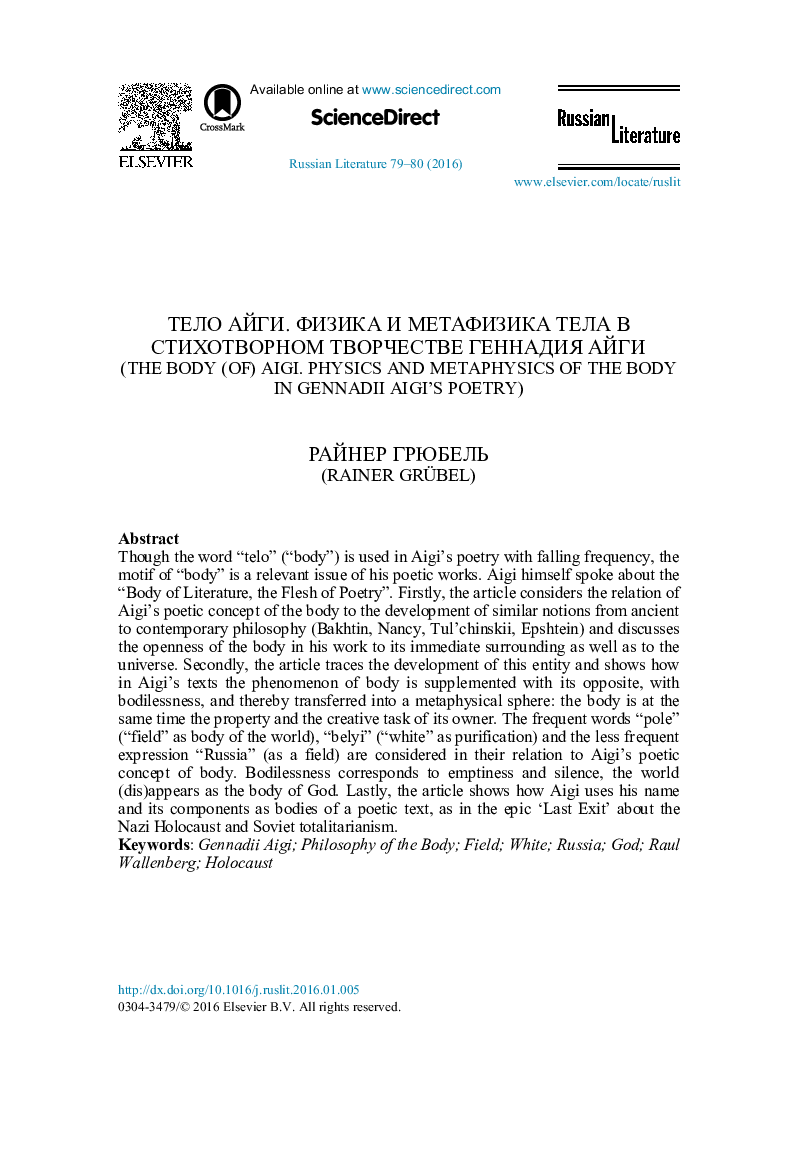| Article ID | Journal | Published Year | Pages | File Type |
|---|---|---|---|---|
| 1103772 | Russian Literature | 2016 | 16 Pages |
Though the word “telo” (“body”) is used in Aigi's poetry with falling frequency, the motif of “body” is a relevant issue of his poetic works. Aigi himself spoke about the “Body of Literature, the Flesh of Poetry”. Firstly, the article considers the relation of Aigi's poetic concept of the body to the development of similar notions from ancient to contemporary philosophy (Bakhtin, Nancy, Tul'chinskii, Epshtein) and discusses the openness of the body in his work to its immediate surrounding as well as to the universe. Secondly, the article traces the development of this entity and shows how in Aigi's texts the phenomenon of body is supplemented with its opposite, with bodilessness, and thеreby transferred into a metaphysical sphere: the body is at the same time the property and the creative task of its owner. The frequent words “pole” (“field” as body of the world), “belyi” (“white” as purification) and the less frequent expression “Russia” (as a field) are considered in their relation to Aigi's poetic concept of body. Bodilessness corresponds to emptiness and silence, the world (dis)appears as the body of God. Lastly, the article shows how Aigi uses his name and its components as bodies of a poetic text, as in the epic ‘Last Exit’ about the Nazi Holocaust and Soviet totalitarianism.
